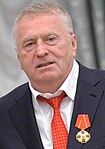
Back Eleccions legislatives russes de 2016 Catalan Parlamentní volby v Rusku 2016 Czech Parlamentswahl in Russland 2016 German Ρωσικές βουλευτικές εκλογές (2016) Greek Elecciones legislativas de Rusia de 2016 Spanish انتخابات پارلمانی روسیه (۲۰۱۶) Persian Venäjän duuman vaalit 2016 Finnish Élections législatives russes de 2016 French הבחירות הפרלמנטריות ברוסיה 2016 HE 2016-os oroszországi parlamenti választás Hungarian
| |||||||||||||||||||||||||||||||||||||||||||||||||||||||||||||||||||||||||||||||||||||||||||||||||||||
All 450 seats to the State Duma 226 seats needed for a majority | |||||||||||||||||||||||||||||||||||||||||||||||||||||||||||||||||||||||||||||||||||||||||||||||||||||
|---|---|---|---|---|---|---|---|---|---|---|---|---|---|---|---|---|---|---|---|---|---|---|---|---|---|---|---|---|---|---|---|---|---|---|---|---|---|---|---|---|---|---|---|---|---|---|---|---|---|---|---|---|---|---|---|---|---|---|---|---|---|---|---|---|---|---|---|---|---|---|---|---|---|---|---|---|---|---|---|---|---|---|---|---|---|---|---|---|---|---|---|---|---|---|---|---|---|---|---|---|---|
| Opinion polls | |||||||||||||||||||||||||||||||||||||||||||||||||||||||||||||||||||||||||||||||||||||||||||||||||||||
| Turnout | 47.88% | ||||||||||||||||||||||||||||||||||||||||||||||||||||||||||||||||||||||||||||||||||||||||||||||||||||
| |||||||||||||||||||||||||||||||||||||||||||||||||||||||||||||||||||||||||||||||||||||||||||||||||||||
 The upper map shows the winning party vote in the territorial election commissions, the lower map shows the party of the winner and his vote in the single mandate constituencies. | |||||||||||||||||||||||||||||||||||||||||||||||||||||||||||||||||||||||||||||||||||||||||||||||||||||
| |||||||||||||||||||||||||||||||||||||||||||||||||||||||||||||||||||||||||||||||||||||||||||||||||||||
Legislative elections were held in Russia on 18 September 2016, having been brought forward from 4 December.[2] At stake were the 450 seats in the State Duma of the 7th convocation, the lower house of the Federal Assembly. Prior to the election United Russia had been the ruling party since winning the 2011 elections with 49.32% of the vote, and taking 238 seats (53%) of the seats in the State Duma.
Prior to the election, observers expected that turnout would be low and called the election campaign the dullest in recent memory.[3] 109,820,679 voters were registered in the Russian Federation (including Crimea)[nb 1] on 1 January 2016. Taking into account people registered outside the Russian Federation and the voters in Baikonur, the total number of eligible voters for 1 January 2016 was 111,724,534.[5] The vote had a record low turnout of 47.88%,[6] with just 28% of Muscovites casting their votes before 6 pm.[7]
- ^ "Выборы депутатов Госдумы VII созыва | РИА Новости – события в России и мире: темы дня, фото, видео, инфографика, радио". Ria.ru. Retrieved 15 December 2016.
- ^ "State Duma passes first reading of bill to postpone the elections". Vedomosti. 19 June 2015. Retrieved 20 June 2015.
- ^ Cite error: The named reference
bbcrdwhnfbtascwas invoked but never defined (see the help page). - ^ UKRAINE REPORTS RUSSIAN MILITARY ACTIVITY ON CRIMEA BORDER, Newsweek (8 August 2016)
Gutterman, Steve (18 March 2014). "Putin signs Crimea treaty, will not seize other Ukraine regions". Reuters.com. Retrieved 26 March 2014.
Ukraine crisis timeline, BBC News
UN General Assembly adopts resolution affirming Ukraine's territorial integrity Archived 4 March 2018 at the Wayback Machine, China Central Television (28 March 2014) - ^ "Сведения об общей численности избирателей, участников референдума Российской Федерации по состоянию на 1 января 2016 года – Центральная избирательная комиссия Российской Федерации". Cikrf.ru. Archived from the original on 15 April 2016. Retrieved 15 December 2016.
- ^ Shaun Walker. "Russia stays loyal to Kremlin in election with record low turnout | World news". The Guardian. Retrieved 15 December 2016.
- ^ "Vladimir Putin's party wins again". The Economist. 19 September 2016. Retrieved 15 December 2016.
Cite error: There are <ref group=nb> tags on this page, but the references will not show without a {{reflist|group=nb}} template (see the help page).
© MMXXIII Rich X Search. We shall prevail. All rights reserved. Rich X Search





